The new kale? Why you should be eating more cauliflower
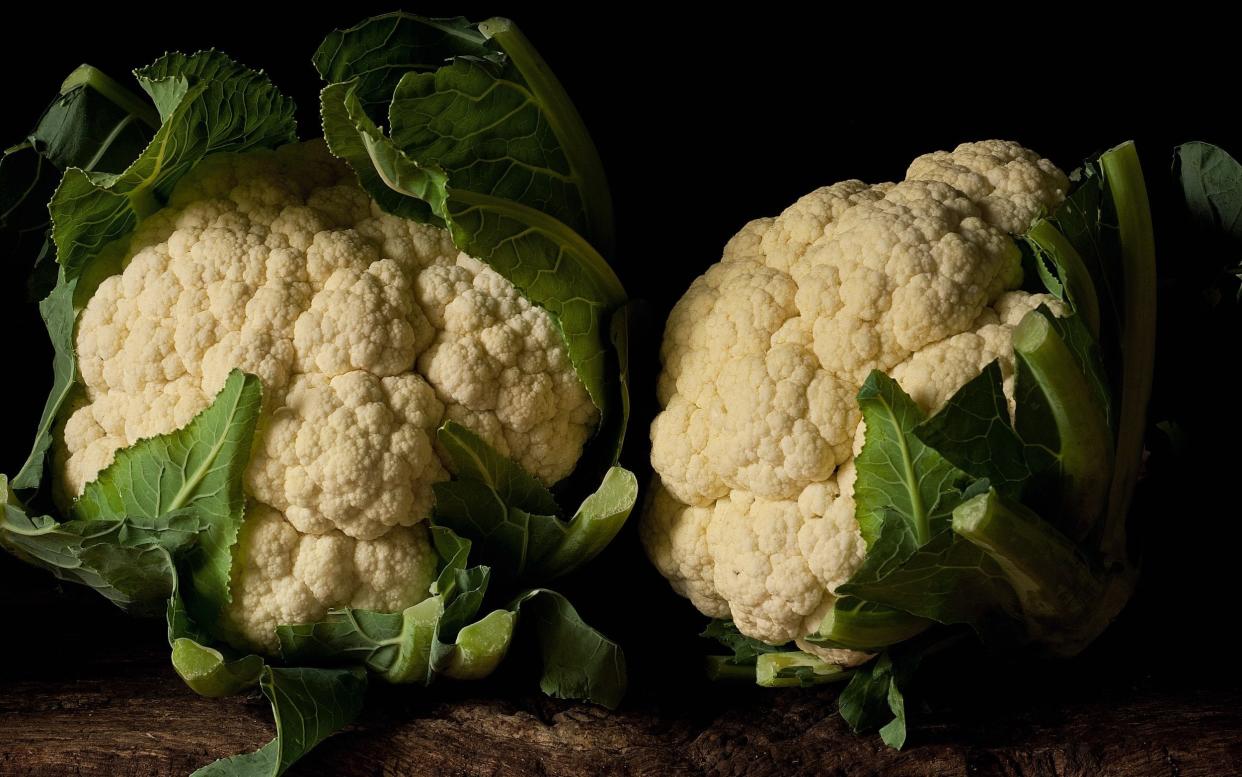
Move over kale, there's a new superfood in town. Recent studies have shown that foods many of us purchase on a regular basis have just as many health benefits as some of the more well-known superfoods out there and it appears it's finally time for the humble cauliflower to shine.
Nutritionists and other experts have been singing cauliflower's praises for years: one serving makes up 73 per cent of our daily recommended Vitamin C intake, contains nearly zero grams of fat, sodium or sugar and comes pack with a host of health benefits, from reducing cancer to boosting brain health.
And it's not just the health squad who love it: twists on cauliflower have been springing up on fashionable menus, while artsy shots of creative cauliflower inspired recipes dominate our Instagram feeds.
A post shared by BBC Good Food (@bbcgoodfood) on May 3, 2017 at 11:35am PDT
Predicting the revival of the cauliflower in 2015, Diana Henry wrote: "Cauliflower is the big boy making all the noise. Roasted florets are gorgeous; a whole roasted head of cauliflower is a revelation, sweet and nutty with tones of nutmeg.
It's similar to what we saw with kale a few years ago
Erik Brown
"Even cauliflower 'steaks' have been appearing (the whole cauliflower is cut into thick slices, then brown until caramelized like a meaty steak). Not long ago cauliflower sales were plummeting (and broccoli was busy strutting its stuff). I say welcome back and take a bow."
So why is cauliflower enjoying a revival when, as recently as 2009, industry insiders were reporting a 35 per cent drop in sales?
Stephen Harris says the problem lies in how cauliflower has traditionally always been cooked. Revealing his secret ingredient for making delicious cauliflower (Marmite) in 2016, Harris wrote: "I think the main problem was that it was always boiled, often for too long, so that it ended up soggy around the florets while sometimes still hard at the stalk.
"Add the noxious smell of overcooked cauliflower and there's not much to like."
The secret superfoods: 10 inexpensive ingredients that can boost your health
Tesco has previously reported a 10 per cent bump in cauliflower sales, while Sainsbury's saw a 15 per cent surge in sales in 2016 when compared to the previous year. Waitrose also reported a 7 per cent increase in sales of cauliflower heads in 2016.
Erik Brown, global produce buyer for Whole Foods who have seen a double digit growth in cauliflower sales over the last two years, told Bloomberg that the surge can be attributed to a range of food fads such as the gluten-free diet and healthy eating in general: "It's similar to what we saw with kale a few years ago."
Here are a few more reasons we should be eating more of it...
Keeps your brain healthy
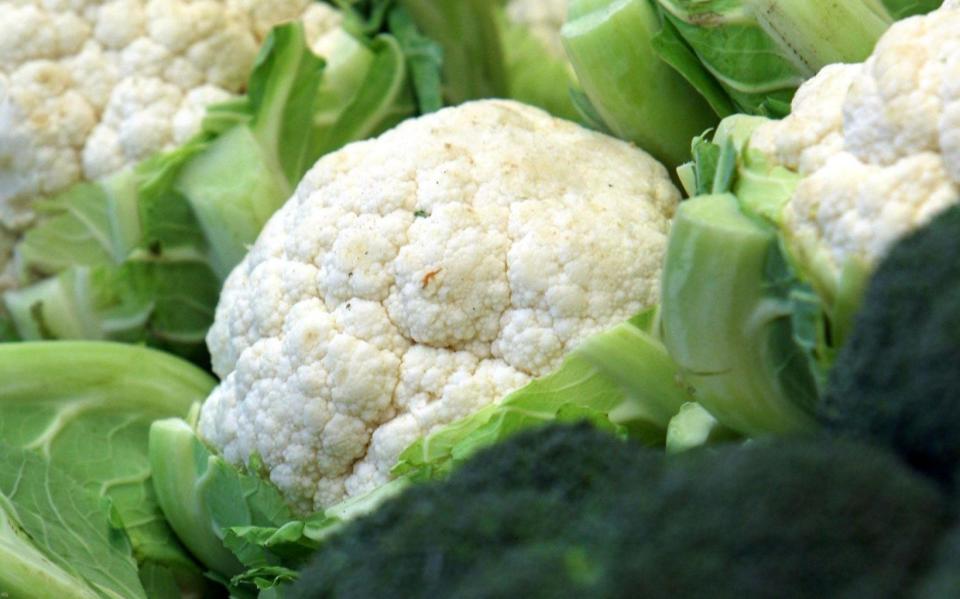
Cauliflower is rich in a nutrient called 'choline', which is essential for brain development as it helps to repair and maintain cell membranes.
In a 2004 review, published in the Journal of Neurophysiology, it was found that the presence of choline positively influenced neural and cognitive development during the prenatal period.
In particular it was shown to "enhance working memory and hippocampal long-term potentiation [the strengthening of synapses in the brain] in adult offspring."
Reduces cancer risk
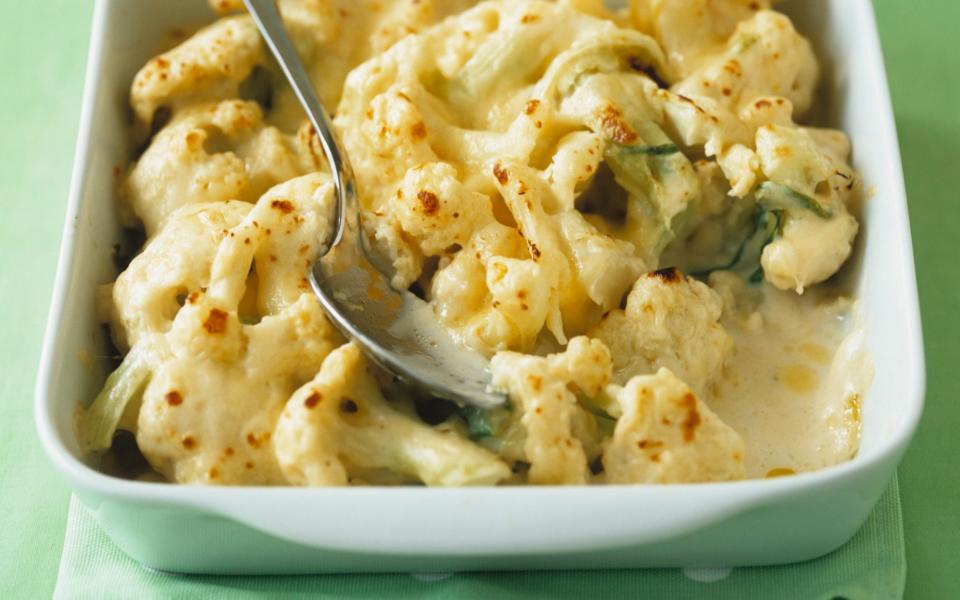
A 2007 study found that a diet rich in cauliflower and broccoli could drastically reduce the chances of a man developing prostate cancer.
Experts at the US National Cancer Institute in Maryland tracked 29,000 men over a four-year period, monitoring their eating habits and regularly screening them for signs of prostate cancer.
By the end of the study they found the men who ate cauliflower twice a week cut their chances of developing prostate cancer by 52 per cent. The study also found that other fruits and vegetables did not appear to have the same impact.
Unclogs your arteries
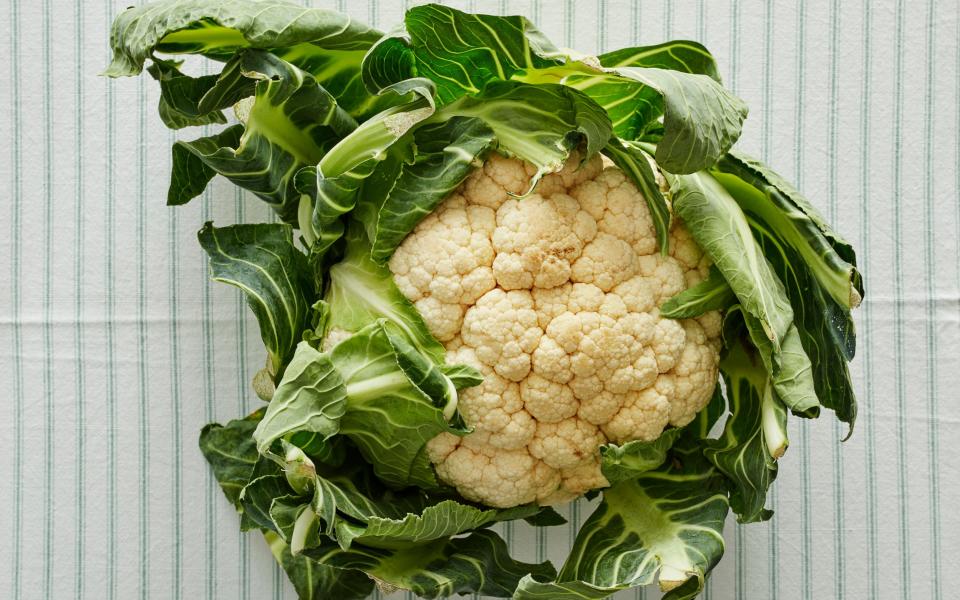
In 2009, a group of researchers found that eating cauliflower could help protect the lining of your arteries. The researchers found that a protein is inactive in certain parts of the artery, making it more vulnerable to disease.
Using mice in tests they found that a chemical called 'sulforaphane' which is found naturally in vegetables like cauliflower, can stimulate the protein and provide the protection to the arteries.
Prof Peter Weissberg, Medical Director at the British Heart Foundation, said: "These fascinating findings provide a possible mechanism by which eating vegetables protects against heart disease.
"As well as adding evidence to support the importance of eating ‘five-a-day’, the biochemistry revealed in this research could lead to more targeted dietary or medical approaches to prevent or lessen disease that leads to heart attacks and strokes."
Helps with weightloss

A 2015 study from the Harvard T.H. Chan School of Public Health found that eating cauliflower could help people lose weight.
While the researchers found that adding more fruit and vegetables to your diet in general can help to promote weight loss, those who ate non-starchy vegetables and fruits such as cauliflower, string beans and apples lost the most weight.
The researchers said this is because non-starchy foods have lower glycemic loads which producer smaller and fewer blood spikes after they are eaten: "Clinical trial evidence suggests that low-glycemic-index (GI) diets may increase resting energy expenditure, promoting weight maintenance."
Reduces the risk of degenerative brain diseases
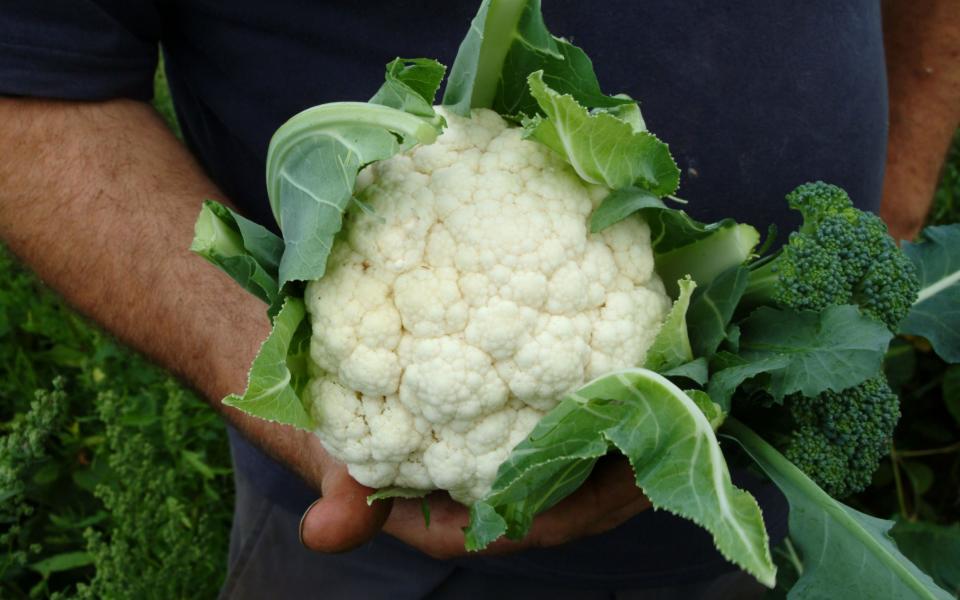
A 2011 study published in the Frontiers in Aging Neuroscience journal linked foods rich in vitamin E, such as cauliflower, to reducing the long-term risk of neurodegenerative diseases like Alzheimer's and Parkinson's disease.
The researchers wrote: "Higher intake of foods rich in vitamin E may modestly reduce long-term risk of dementia and AD."
Another study published in the same journal in 2014 said that cauliflower has the potential to ward off neurodegenerative diseases: "Cruciferous vegetables such as cauliflower, cabbage, and broccoli, are another group of vegetables rich in antioxidants with neuroprotective capacity."
Our favourite cauliflower recipes
Stephen Harris' Marmite-roasted cauliflower with walnuts and grapes

Roast cauliflower with chilli, orange and rosemary pangrattato

One pot Parmesan roast chicken and cauliflower

Deliciously Ella's pea and cauliflower bowl
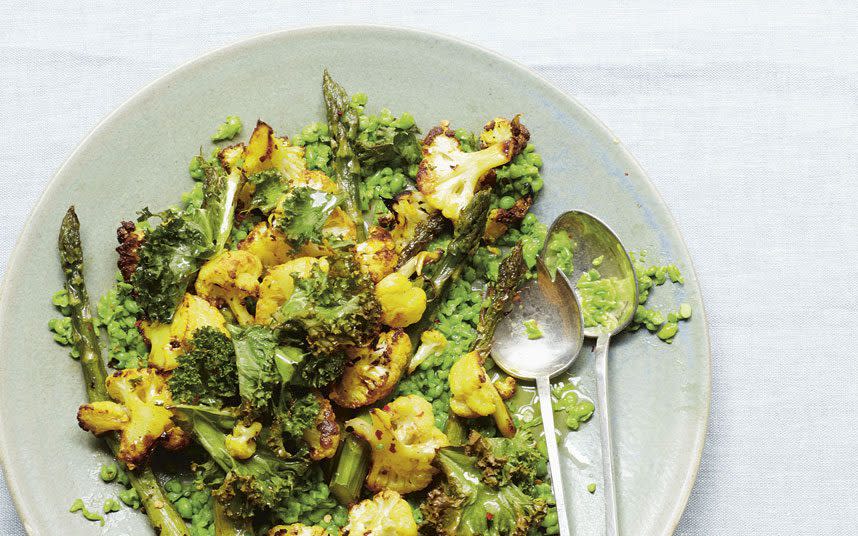
Roasted cauliflower with chickpeas, garlic yogurt and anchovies

Low-carb cauliflower crust pizza

Whole roasted cheesy cauliflower

Spiced vegetable pulao with cauliflower, ginger and garam masala

 Yahoo News
Yahoo News 
